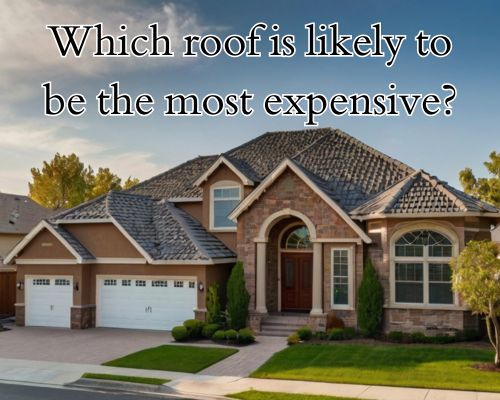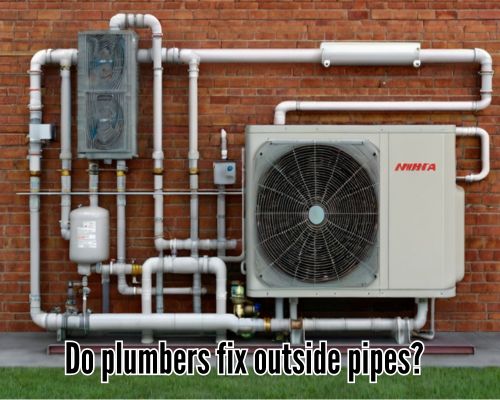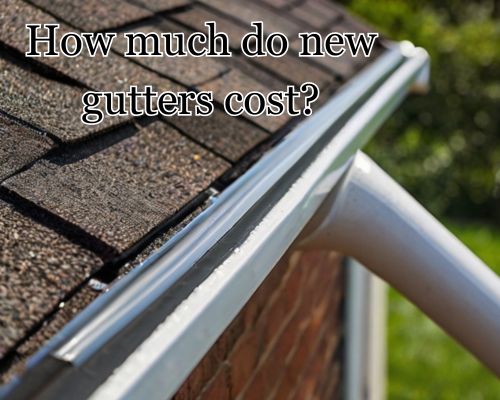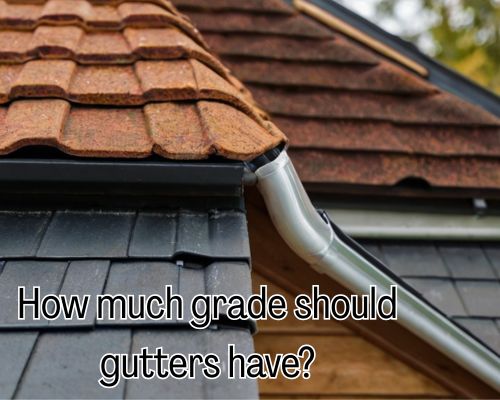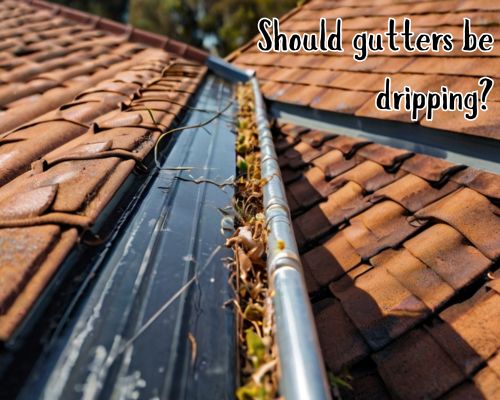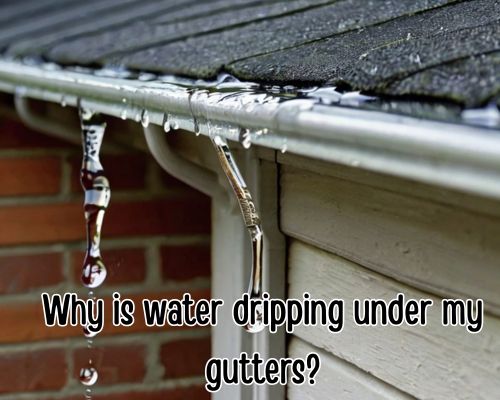Should Gutter Cleaning Mean Washing? A Complete Guide for Melbourne Homeowners
Should Gutter Cleaning Mean Washing? A Complete Guide for Melbourne Homeowners
When it comes to home maintenance in Melbourne, Australia, gutter cleaning is often a task that’s overlooked until it causes significant damage. But a common point of confusion among property owners is this: Should gutter cleaning mean washing as well? Is a quick debris removal sufficient, or should water be involved for a thorough clean?
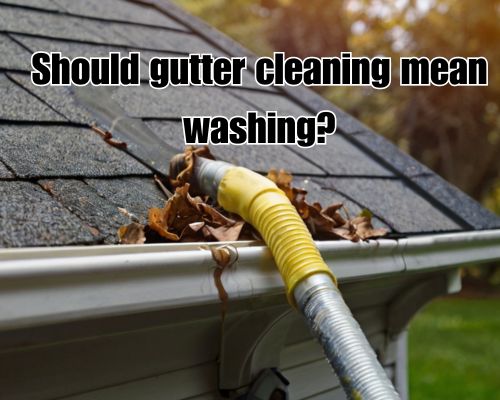
With Gutter Cleaning Melbourne, we explore the real meaning of gutter cleaning, whether washing should be a standard part of the process, and what’s most appropriate for Melbourne’s unique urban and suburban environments. We’ll also explore cost-effective tips, seasonal timing, and the impact of weather patterns specific to Victoria.
Understanding Gutter Cleaning: More Than Just Debris Removal
Gutter cleaning typically refers to the removal of leaves, twigs, sludge, and other debris from your roof gutter system. However, in many professional services—especially across Melbourne suburbs like St Kilda, Brunswick, and Box Hill— like Gutter Cleaning Melbourne, cleaning may also include flushing the gutters and downpipes with water to remove stubborn grime or sediment buildup.
This gives rise to the keyword inquiry: Should gutter cleaning mean washing?
The answer depends on several factors, including:
- Gutter material and age
- Amount of buildup
- Climate exposure
- Nearby vegetation
- Frequency of maintenance
Why “Washing” Is Often a Necessary Part of Gutter Cleaning in Melbourne
Melbourne’s seasonal weather—particularly autumn leaf fall, winter rains, and storm winds—means your gutters are likely to accumulate not just dry leaves but moist organic matter. Over time, this breaks down into sludge that clogs drainage channels.
Washing or flushing gutters with water helps:
- Break down sticky residue that scraping can’t remove
- Clear downpipes that may be blocked below the surface
- Test water flow, ensuring your gutters are draining correctly
- Prevent mould, mildew, and rust, particularly on older steel gutters
Local experts in areas like Doncaster and Richmond often recommend a wet flush at least once a year, especially before Melbourne’s wetter months from May to September.
Dry Clean vs. Wet Clean: Pros and Cons
Let’s examine the difference between dry and wet gutter cleaning and which is better suited to Melbourne homes.
| Method | Description | Pros | Cons |
|---|---|---|---|
| Dry Clean | Manual removal of debris without water | Quick, less mess, cheaper | Doesn’t remove sludge or test flow |
| Wet Clean (Washing) | Flushing with hose or pressure washer | Comprehensive, flushes grime, checks drainage | Slightly more expensive, may require water access |
In bushy suburbs like Eltham or Greensborough, where eucalyptus trees are abundant, wet cleaning helps remove sticky gum leaves and detritus that dry methods miss.
Should You DIY or Hire a Professional?
If you’re debating whether to clean and wash your gutters yourself or hire a local service in Melbourne, consider:
- Safety: Climbing ladders is risky, especially on double-storey homes in areas like Toorak or Camberwell.
- Tools: Proper gutter washing requires hoses, scoopers, and possibly gutter vacuums or pressure washers.
- Experience: Pros know how to avoid damaging tile roofs or older Colorbond gutter systems.
Most licensed Melbourne gutter cleaners offer both basic debris removal and optional gutter washing as an add-on. Many also include a roof inspection and can identify minor issues like cracked flashing or sagging sections.
How Often Should You Wash Your Gutters in Melbourne?
Here’s a seasonal guide for Melbourne-based gutter maintenance:
- Autumn (March–May): Prime season for leaf fall. Clean and possibly wash.
- Winter (June–August): Flush and check for blockages due to heavy rains.
- Spring (September–November): Minor clean-up. Spot washing if birds or pests have nested.
- Summer (December–February): Fire-prone season. In outer suburbs near bushland, ensure gutters are clean and dry.
For most properties, washing the gutters once a year, paired with dry cleaning every six months, offers a balanced and cost-effective approach.
What Does Gutter Cleaning Cost in Melbourne?
In 2025, average gutter cleaning prices across Melbourne range between:
- $150–$300 for a single-storey house
- $250–$500 for double-storey
- Add $50–$100 for full wet washing or downpipe flushing
Costs can vary depending on your roof size, pitch, and tree density, especially in leafy areas like Surrey Hills or Kew.
Always check if the quote includes washing. Many providers market “gutter cleaning” but exclude washing unless specified.
Signs Your Gutters Need Washing, Not Just Cleaning
Here’s how to know it’s time to wash those gutters:
- Persistent overflowing during rain despite debris removal
- Black stains or green moss on gutter sides
- Musty smell near eaves or walls
- Water pooling at the base of your property
- Rainwater not reaching downpipes
Ignoring these signs can lead to foundation issues, roof rot, and interior ceiling leaks—all of which are preventable with regular washing.
Final Verdict: Should Gutter Cleaning Mean Washing?
💡 Yes, in most Melbourne homes, gutter cleaning should include washing—especially if it hasn’t been done in over a year or your property is surrounded by vegetation. While basic cleaning removes the visible mess, washing ensures that drainage functions properly and prolongs the life of your gutters and roofline.
Whether you’re in inner-city Carlton, beachside Brighton, or bushland-adjacent Warrandyte, investing in occasional gutter washing can save you thousands in repairs later.
Local Tip: Combine Gutter Washing with Roof Inspection
For Melbourne residents booking annual maintenance, consider bundling gutter washing with a roof and solar panel inspection. With the city’s varying weather, keeping your entire rooftop ecosystem clean boosts efficiency, especially for homes with solar PV systems.
Call to Action: Don’t Just Clean – Wash Smart!
If you’re searching for “gutter cleaning services near me in Melbourne”, make sure to ask: Does your quote include gutter washing? That one question could make the difference between a temporary fix and a long-term solution.
🧰 Ready to wash away the risk? Contact a certified Melbourne gutter maintenance expert today and give your home the clean edge it deserves—inside and out.
